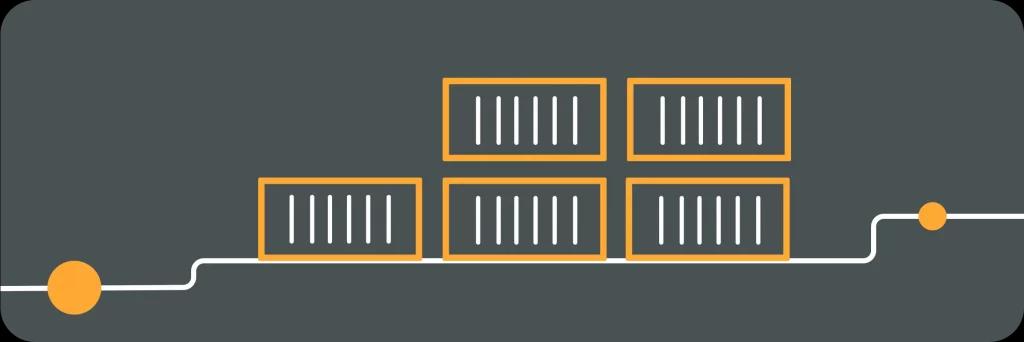What is Jenkins in DevOps?


DevOps is a methodology that combines software development and IT operations to improve collaboration and streamline the software delivery process. In DevOps, automation plays a crucial role in achieving efficiency and reliability. One of the key tools used in DevOps is Jenkins, an open-source automation server.
Understanding the Basics of DevOps
In order to understand the role of Jenkins in DevOps, it is important to grasp the basics of DevOps itself. DevOps is not just a set of tools, but a cultural and organizational shift that aims to break down silos and foster collaboration between development and operations teams. The ultimate goal of DevOps is to enable organizations to deliver software faster, with higher quality and reliability.
Automation is a core principle of DevOps, as it enables teams to automate repetitive tasks, reduce human errors, and achieve faster release cycles. Without automation, the manual coordination and deployment of software become time-consuming and error-prone.
The Role of Automation in DevOps
Automation is at the heart of DevOps practices. By automating the build, test, and deployment processes, organizations can achieve continuous integration and delivery. Automation allows for more frequent releases, faster response times to customer needs, and shorter time-to-market.
Furthermore, automation helps identify and resolve issues early in the software development lifecycle. Automated testing and continuous monitoring are essential in providing feedback on the quality and performance of the software, allowing developers to make improvements and address issues proactively.
Key Concepts and Principles of DevOps
In addition to automation, there are several key concepts and principles that are fundamental to DevOps:
- Collaboration: DevOps encourages collaboration and communication between development, operations, and other stakeholders. By working together, teams can align their goals and collectively work towards delivering value to customers.
- Continuous Integration: Continuous Integration is the practice of frequently merging code changes into a shared repository. With CI, developers can detect integration issues early and avoid long and complex merge processes.
- Continuous Deployment: Continuous Deployment goes hand in hand with Continuous Integration. It is the practice of automatically releasing software changes to production environments after they pass a series of automated tests.
Another key concept in DevOps is infrastructure as code (IaC). IaC is the practice of managing and provisioning infrastructure through code, rather than manual processes. By treating infrastructure as code, organizations can achieve consistency, scalability, and version control, reducing the risk of configuration drift and enabling faster and more reliable deployments.
Additionally, DevOps emphasizes the importance of monitoring and logging. Monitoring allows organizations to track the performance and availability of their systems, detect anomalies, and take proactive measures to prevent issues. Logging, on the other hand, provides a detailed record of system events, helping in troubleshooting and root cause analysis.
Introduction to Jenkins
Jenkins is an open-source automation server that is widely used in DevOps environments. It was originally developed as a fork of the Hudson project and has since become the de facto standard for continuous integration and delivery.
The Origin and Evolution of Jenkins
Jenkins traces its roots back to the Hudson project, which was created in 2005. Hudson was used for continuous integration and enjoyed great popularity in the DevOps community. However, due to a dispute over copyrights, Jenkins was born as a fork of Hudson in 2011.
Since then, Jenkins has evolved significantly and gained a large and active community of users and contributors. It offers a wide range of plugins and integrations, making it a versatile tool that can be customized to fit any DevOps workflow.
One interesting aspect of Jenkins’ evolution is its adoption by various industries and organizations. From startups to large enterprises, Jenkins has become a go-to solution for automating software development processes. Its flexibility and extensibility have allowed it to be integrated into diverse environments, ranging from web development to mobile app development and even embedded systems.
Key Features and Benefits of Jenkins
Jenkins provides a wealth of features that support the automation and integration of software development processes. Some of the key features include:
- Continuous Integration: Jenkins enables the frequent integration and testing of code changes, helping teams identify and address issues early in the development lifecycle.
- Extensibility: Jenkins has a vast ecosystem of plugins that allow users to extend its functionality and integrate with other tools commonly used in DevOps environments.
- Distributed Architecture: Jenkins can be configured with master and slave nodes, enabling parallel execution of builds and distributing the workload across multiple machines.
These features, along with others, make Jenkins a powerful tool for automating the software delivery pipeline and facilitating collaboration within DevOps teams.
Furthermore, Jenkins offers robust security features to ensure the integrity and confidentiality of sensitive data. It supports authentication and authorization mechanisms, allowing administrators to control access to Jenkins resources based on user roles and permissions. This level of security is crucial in today’s interconnected world, where protecting sensitive information is of paramount importance.
In conclusion, Jenkins has come a long way since its inception as a fork of Hudson. Its evolution, adaptability, and extensive feature set have made it the preferred choice for organizations looking to streamline their software development processes. With its active community and continuous improvement, Jenkins is poised to remain a dominant force in the DevOps landscape for years to come.
The Role of Jenkins in DevOps
Now that we have a solid understanding of DevOps and Jenkins, let’s explore how Jenkins contributes to the overall DevOps process.
Jenkins, an open-source automation tool, has become a cornerstone in the world of DevOps by streamlining and automating various aspects of the software development lifecycle. Its versatility and extensibility make it a popular choice for organizations looking to adopt DevOps practices.
How Jenkins Facilitates Continuous Integration
Jenkins plays a vital role in enabling continuous integration, which is a fundamental practice in DevOps. By integrating code changes frequently and automatically, Jenkins helps teams detect and resolve integration issues early, leading to faster development cycles and higher software quality.
Jenkins achieves continuous integration by monitoring version control systems for changes and triggering automated builds and tests whenever new code is committed. It provides feedback on the success or failure of the build and helps identify the cause of any build failures.
Moreover, Jenkins offers a wide range of plugins that extend its functionality, allowing teams to integrate with various tools and technologies seamlessly. This flexibility enables organizations to customize their CI/CD pipelines to suit their specific requirements and workflows.
Jenkins and Continuous Deployment
In addition to continuous integration, Jenkins also supports continuous deployment, the practice of automatically releasing software changes to production environments. Jenkins allows teams to define and configure delivery pipelines, which specify the stages and actions required to deploy software changes from development to production.
By automating the deployment process, Jenkins eliminates the need for manual intervention and minimizes the risk of human errors. This enables organizations to release software more frequently, respond to customer needs faster, and deliver value with increased stability and reliability.
Furthermore, Jenkins integrates seamlessly with popular cloud platforms and container orchestration tools, enabling organizations to leverage the scalability and flexibility of cloud-native technologies in their deployment processes.
Jenkins Architecture and Components
To understand how Jenkins works within a DevOps environment, it’s important to familiarize ourselves with its architecture and components.
Understanding the Jenkins Master and Slave Nodes
Jenkins follows a distributed architecture, consisting of a master node and multiple slave nodes. The master node is responsible for coordinating and scheduling builds, while the slave nodes perform the actual build and test tasks.
The master node manages the configuration, job definitions, and monitoring of the entire Jenkins environment. Slave nodes, on the other hand, provide the computing resources necessary to execute builds. They can be configured to run on different machines, allowing for parallel execution and faster build times.
Exploring Jenkins Plugins and Their Functions
Jenkins offers a vast collection of plugins that extend its functionality and integrate with other tools commonly used in DevOps environments. These plugins cover a wide range of areas including version control systems, build tools, testing frameworks, deployment tools, and more.
With plugins, Jenkins can be tailored to fit specific requirements and workflows. They enable users to seamlessly integrate Jenkins with their existing technology stack and fully leverage its capabilities.
Setting Up Jenkins for DevOps
Now that we have an understanding of Jenkins and its role in DevOps, let’s explore how to set up Jenkins for a DevOps environment.
Installation and Configuration of Jenkins
Jenkins can be installed on various operating systems, including Windows, macOS, and Linux. It can also be deployed in different environments, such as on-premises servers or cloud-based platforms.
Once Jenkins is installed, it needs to be configured to suit the specific requirements of the DevOps environment. This includes setting up security, defining build jobs, configuring version control system integration, and selecting the necessary plugins.
Integrating Jenkins with Other DevOps Tools
Jenkins plays well with other DevOps tools and can be seamlessly integrated into existing workflows. It supports integration with popular version control systems like Git and Subversion, build tools like Maven and Gradle, testing frameworks like JUnit, and deployment tools like Kubernetes and Ansible.
By integrating Jenkins with other tools, teams can create end-to-end automation pipelines that cover the entire software development lifecycle, from code compilation and testing to deployment and monitoring.
In conclusion, Jenkins is more than just an automation server. It is a crucial component of DevOps, enabling organizations to achieve continuous integration and delivery. With its wide range of features, extensibility, and distributed architecture, Jenkins empowers DevOps teams to automate and streamline their software delivery pipeline. By understanding Jenkins and its role in DevOps, organizations can leverage its capabilities and contribute to a faster, more efficient software development process.
Your DevOps Guide: Essential Reads for Teams of All Sizes
Elevate Your Business with Premier DevOps Solutions. Stay ahead in the fast-paced world of technology with our professional DevOps services. Subscribe to learn how we can transform your business operations, enhance efficiency, and drive innovation.






